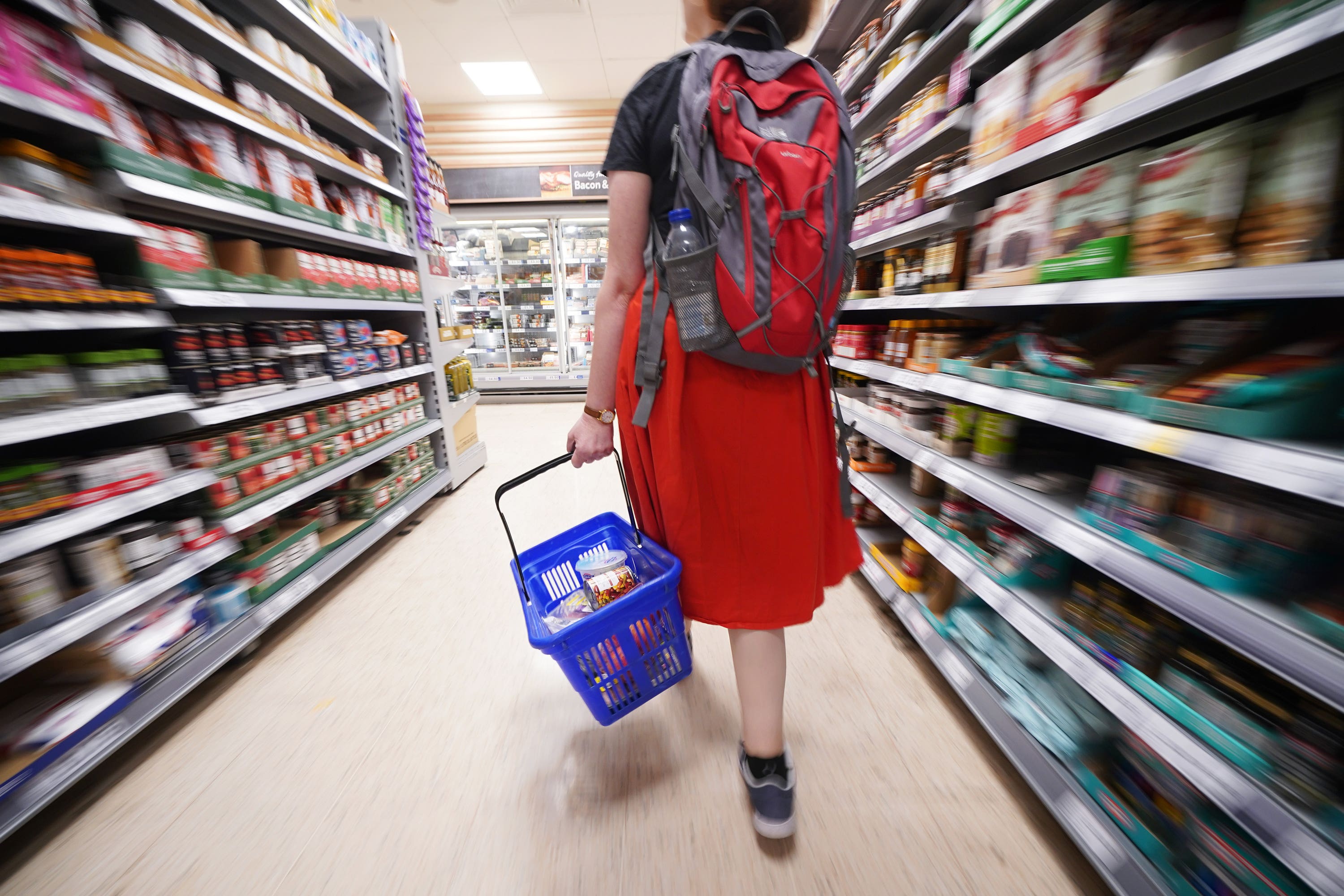Grocery price inflation slowdown stumbles as supermarkets offer fewer deals
Grocery prices were 6.8% more expensive than a year ago in January, only a slight easing from December’s 6.9%, according to analysts Kantar.

Your support helps us to tell the story
This election is still a dead heat, according to most polls. In a fight with such wafer-thin margins, we need reporters on the ground talking to the people Trump and Harris are courting. Your support allows us to keep sending journalists to the story.
The Independent is trusted by 27 million Americans from across the entire political spectrum every month. Unlike many other quality news outlets, we choose not to lock you out of our reporting and analysis with paywalls. But quality journalism must still be paid for.
Help us keep bring these critical stories to light. Your support makes all the difference.
The slowdown of grocery price inflation has stumbled as supermarkets offered their customers fewer deals after Christmas, figures show.
Grocery prices were 6.8% more expensive than a year ago in January, only a slight easing from December’s 6.9% and a significant drop-off in pace compared with the 2.2 percentage point decrease seen between November and December, according to analysts Kantar.
Items bought on offer accounted for 27% of all grocery spending in January compared with 32% in December, when retailers competed to attract customers through their doors.
Despite this, shoppers spent almost £500 million more on offers this January than in the same month last year.
Fraser McKevitt, head of retail and consumer insight at Kantar, said: “All eyes are back on inflation again after the Consumer Prices Index’s (CPI) unexpected jump earlier in the month.
“There’s been a lot of speculation about the impact the Red Sea shipping crisis might have on the cost of goods, but the story in the grocery aisles this January is more about the battle between the supermarkets to offer best value, rather than geopolitics.
“Retailers have taken their foot off the promotions gas slightly as we’ve come into the new year, and that’s meant inflation hasn’t fallen as quickly.”
Kantar’s research suggested consumers were opting for more homemade meals to keep budgets in line, with 86 million more lunchboxes brought to work last year.
People are now buying more of the typical January ‘health kick’ items throughout the year - 9% of annual own label plant-based sales were made in January in 2023, a steady decline compared with the 11% of sales in 2020
Spending on alcohol fell by more than half compared with December, with almost 6% of beer packs sold this month either no or low-alcohol options, a jump from 4% at the end of last year.
Mr McKevitt said: “Health always comes to the fore as a priority for consumers in January, but what’s interesting this month is that we’re not seeing as big a spike in health-related categories as we have done in previous years.
“That’s because people are now buying more of the typical January ‘health kick’ items throughout the year – 9% of annual own label plant-based sales were made in January in 2023, a steady decline compared with the 11% of sales in 2020.”
Both Sainsbury’s and Tesco gained market share over the quarter compared with a year ago, increasing sales by 8.1% and 6.3% respectively.
Lidl was the fastest growing grocer in Britain for the fifth month in row and the only retailer to see double-digit growth in the latest 12 weeks, with spending at the discounter up 11.9%.
Aldi also grew ahead of the market, with sales up by 7.2%.